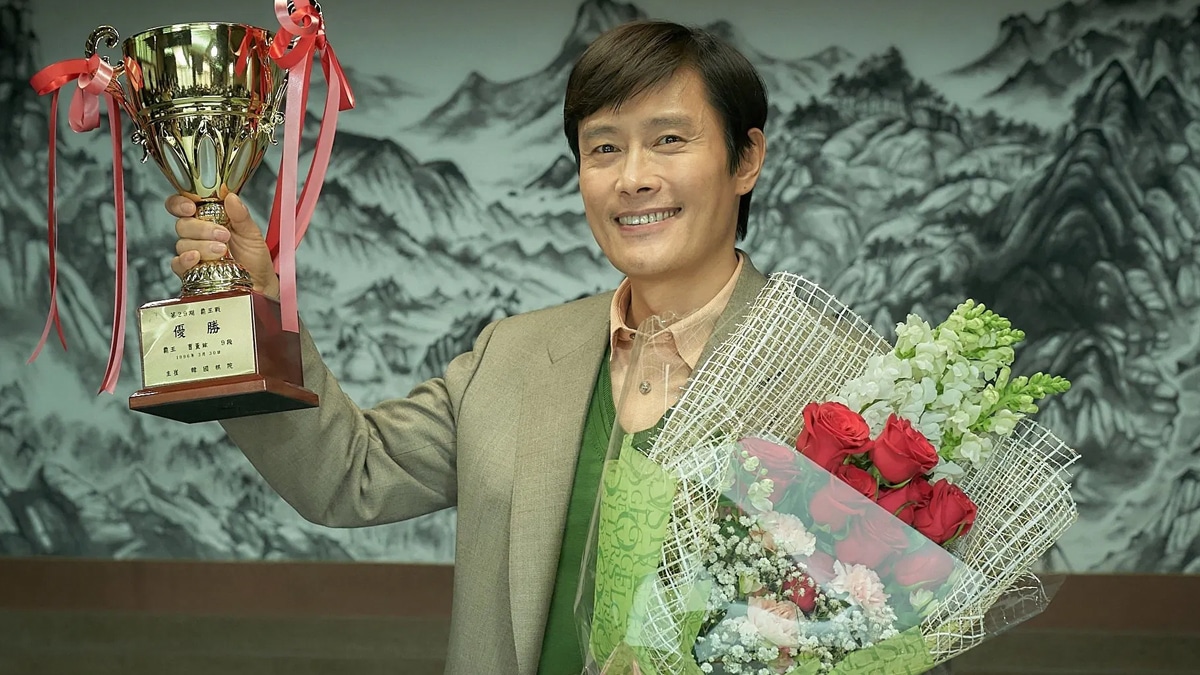Members of the Goodfellas and the Falcons ball hockey teams battle it out at Frank McKechnie Community Centre in Mississauga, Ont.Alex Franklin/The Globe and Mail
In this series, Reimagining Wealth, we explore the evolving definition of wealth in today’s world. We meet Canadians who are thinking beyond traditional measures of success to maximize happiness and well-being and to build a fulfilling life.
Back in the 1990s, Jaspaul Singh was just a Sikh kid on a Toronto street, whacking a ball around with friends using worn-out sticks and borrowed gear.
“We would play ball hockey on our street, pick up a stick, put on some goal equipment,” he says. Fast forward to 2014, and Mr. Singh – alongside a group of close friends – channelled that passion into something greater: the very first Khalsa Cup, a charity ball hockey tournament in Brampton, Ont., that raised $6,000.
“It wasn’t a massive sum, but it showed us what was possible,” says Mr. Singh, now 41. That first tournament sparked a movement. Today, the Khalsa Cup has grown into an annual four-day event, bringing together 16 to 20 teams, more than 500 players and countless volunteers and fans from across the Greater Toronto and Hamilton Area.
Among those players is Sukhpal Grewal, 31, who’s been part of the tournament since day one.
“The Falcons is our team,” he says proudly. “Growing up in Brampton, we were all first-generation Canadians who fell in love with the game.” Formed in high school, The Falcons were guided by coaches Jordan Jeans and the late Ryan Hopper and went on to compete at some of Ontario’s highest ball hockey levels.
What the players longed for, Mr. Grewal explains, was a space to celebrate both their athletic talent and cultural identity. The Khalsa Cup offered that and more – a competitive tournament grounded in Sikh principles of seva (selfless service) and sarbat da bhalla (the well-being of all).
“It’s always been about more than just hockey. It’s about giving back,” he says.
‘The energy was electric’
‘It’s still grassroots, but the level of play – and the level of heart – is top tier.’Alex Franklin/The Globe and Mail
Over the years, the tournament has supported causes ranging from Khalsa Aid Canada, a non-profit organization providing disaster relief and refugee support, to PC Children’s Charity, which aims to feed one million kids every year, to The Kaur and Singh Movement Foundation, a charity focused on empowering survivors of sexual assault and domestic violence. The upcoming 2025 tournament is scheduled for August and the organizers says it is poised to be the biggest yet.
Behind the scenes, a dedicated team continues to drive its growth. In addition to Mr. Singh and Mr. Grewal, the advisory board includes community members who have elevated the tournament’s reach by introducing live streaming, professional photography, play-by-play commentary and digital highlights. “We’re always looking for ways to enhance the experience,” says Mr. Grewal. “It’s still grassroots, but the level of play – and the level of heart – is top tier.”
That heart shines through in moments like the 2023 Pool B finals between the Michigan Knight Riders and T-Park Youngstars.
“It was national-level veterans versus young, fast, skilled up-and-comers,” says Mr. Grewal. “The energy was electric – everyone was on their feet.”
But perhaps the most powerful story is that of Rajwinder “Bitta” Sandhu, a long-time supporter and player. A trailblazer in the ball hockey world, Mr. Sandhu has represented Team India in World Championships and earned national titles with the Mississauga Hawks. Today, he plays with and mentors his sons and nephews, who have gone on to win championships of their own.
“The sport of ball hockey has brought me so much joy and taught me so much about respect, competition and leadership throughout my life,” Mr. Sandhu says. “I wish to pass these values on through my kids and the next generation of South Asians who love the game.” He’s a fixture at the tournament – whether scoring goals or sharing post-game laughs over drinks with friends and former rivals.
“No matter who wins or loses, you’ll always find Bitta connecting with everyone,” Mr. Grewal says.
Bonds on and off the rink
The teams high five after the game. ‘It’s about coming together and creating something bigger than ourselves.’Alex Franklin/The Globe and Mail
Mentorship is central to the Khalsa Cup’s success. A recent example is the Brampton Battalions, who won their division with a roster combining teen players (ages 17–20) with their older brothers and cousins (25–35). “It’s amazing to see those generational bonds strengthen on and off the rink,” Mr. Grewal says.
The impact extends beyond the players. Volunteers – many of them newcomers to Canada – find a sense of belonging through the tournament. Mr. Singh recalls one such volunteer who arrived from India and quickly fell in love with the game after helping out at Khalsa Cup. “For him, it became a way to connect, to feel part of something here.”
When asked how they define success, neither Mr. Singh nor Mr. Grewal mentions money.
“My success was building youth passion for hockey into the next generation,” says Mr. Singh. For Mr. Grewal, it’s even simpler: “Our wealth comes from that love. Seeing everyone coming together, sharing laughs, sharing cheers – whether it’s wins or losses – that’s what matters.”
The Khalsa Cup may have started as a scrappy street dream, but today it’s something much bigger. It’s a celebration of identity, a platform for mentorship and a living example of what wealth can truly mean – when measured in community, not currency.
As Mr. Singh puts it: “It’s like the Stanley Cup for our community. But it’s not about winning or losing. It’s about coming together and creating something bigger than ourselves.”












![30th Apr: Asterix & Obelix: The Big Fight (2025), Limited Series [TV-Y7] (6/10)](https://occ-0-171-92.1.nflxso.net/dnm/api/v6/Qs00mKCpRvrkl3HZAN5KwEL1kpE/AAAABbfXCAcQWVKTAEnPNXEYrnVOJ4kcytCrhMKngMCbKAdreLlGUwNDFiuo5cHMqLqOEWSIKSG1CaSyd_J0EkKwYJ3DDbroKwGrmzBQX_AtmU6BgXwnXnHVLYS74Hcd2DqHH0sASM50OrBFLiA7lojTpJpEzqfhzsR1jStrjZNoamyJE4SAl9vN-5_JGAXIJU0qXeX3NHRYMg.jpg?r=a2a)


